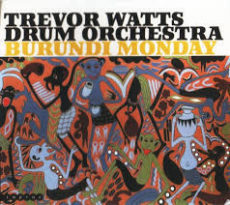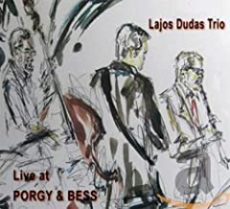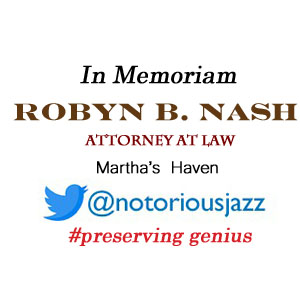
Daily Dose Of Jazz…
Alexander von Schlippenbach was born into the Schlippenbach noble family on April 7, 1938 in Berlin, Germany. He started to play piano from the age of eight and went on to study composition at Cologne under Bernd Alois Zimmermann. While studying he started to play with Manfred Schoof.
At the age of 28 he founded the Globe Unity Orchestra. In 1988, he founded the Berlin Contemporary Jazz Orchestra, a big band that has over the years had, among others, Willem Breuker, Paul Lovens, Misha Mengelberg, Evan Parker, Schlippenbach’s wife Aki Takase and Kenny Wheeler.
Alexander has produced various recordings and worked for German radio channels. He played in a free jazz trio with saxophonist Evan Parker and drummer Paul Lovens with many players of the European free jazz community.
In 1994, he was awarded the Albert Mangelsdorff prize. He recorded 43 albums as a leader, eighteen with Globe Unity Orchestra, and another thirty-three with numerous others. Since the 1990s, pianist Alexander Von Schlippenbach has explored the work of more traditional jazz composers such as Jelly Roll Morton or Thelonious Monk, recording the latter’s complete works which were released on CD as Monk’s Casino.
More Posts: bandleader,history,instrumental,jazz,music,piano

Daily Dose Of Jazz…
Kalaparusha Maurice McIntyre was born on March 24, 1936 in Clarksville, Arkansas but raised in Chicago, Illinois. He studied at the Chicago College of Music, and during the 1960s began playing with musicians such as Malachi Favors, Muhal Richard Abrams, and Roscoe Mitchell. Along with them he became a member of the ensemble Association for the Advancement of Creative Musicians (AACM) in 1965.
He recorded his first solo album in 1969. During this time he recorded as a session musician for Delmark Records, playing with George Freeman, J.B. Hutto, and Little Milton, among others. The same year, Kalaparusha was convicted for drug offences, serving his sentence in Lexington, Kentucky with fellow inmate and friend musician/composer Tadd Dameron.
Moving to New York City in the 1970s, he played at Sam Rivers’s Rivbea Studios and taught at Karl Berger’s Creative Studio. He and Muhal Richard Abrams toured Europe several times. After his 1981 live album, McIntyre recorded very little, playing on the streets and in the subways of New York. His next major appearance on record was not until 1998, with Pheeroan akLaff and Michael Logan. The following year he played with many AACM ensemble members on the album Bright Moments. He continued releasing albums as a leader into the new century.
Free jazz tenor saxophonist Kalaparusha Maurice McIntyre transitioned on November 9, 2013, in The Bronx, New York, at the age of 77.
More Posts: bandleader,history,instrumental,jazz,music,saxophone

Daily Dose Of Jazz…
Clotilde Rullaud was born March 1, 1978 in Reims, France and was immersed in the performing arts of music, theatre and dance from early childhood. At five, she began studying flute and singing at the conservatoire, before going on to complete her studies in jazz and improvised music at IACP in Paris, France and EDIM in Cachan, France. She explored opera singing with the tenor singer, Peterson Cowan.
Her musical identity developed through her travels through the Balkans, Ireland, Lebanon, the United States. Clotilde’s study of vocal techniques, inspired by Meredith Monk, fado, tango, Romani music, Turkish music, Persian music, Inuit throat singing and Bulgarian voices were also great influences.
She has recorded three albums as a vocalist and flutist, her 2007 debut with Hugo Lippi, Live au 7 Lézards She has also directed and produced a short film, and written and directed a multidisciplinary performance. With a repertoire spanning jazz, free improvisation and folk music, her career as a musician has led her to perform in France, Germany, Australia, Burkina Faso, China, South Korea, Japan, Luxembourg, the Netherlands, Switzerland, Taiwan, the United Kingdom and the United States.
Since 2007, Rullaud has taught at Martina A. Catella’s school, Les Glotte-Trotters in Paris, and conducted workshops for the festival Les Suds in Arles and for the Ateliers d’ethnomusicologie (ADEM) in Geneva, Switzerland. Moving to New York City in 2017 she collaborated with American pianist Chris McCarthy, producing Pieces of a Song, a repertoire of dark and beautiful pieces based on the writings of Diane di Prima, poetess of the Beat Generation.
She has performed with Olivier Hutman, Dano Haider, Antoine Paganotti, Tristan Macé, Albin Lebossé, Emmanuel Bex, Yann Cléry, Laurent Salzard, Gautier Garrigue, and Alexandre Saada, the latter collaboration produced A Woman’s Journey, a homage to American female protest songstresses.
She has received numerous awards for her work in both jazz and film. Vocalist, flutist and composer Clotilde Rulllaud, who is also an artistic director, filmmaker, producer and facilitator, continues to pursue the limits of her creativity.
More Posts: composer,flute,history,instrumental,jazz,music,vocal

Daily Dose Of Jazz…
Trevor Charles Watts was born in York, England on February 26, 1939 and is largely self-taught, having taken up the cornet at age 12 then switched to saxophone at 18.
While stationed in Germany with the RAF from 1958 to 1963, he encountered the drummer John Stevens and trombonist Paul Rutherford. After his service he returned to London, England and in 1965, he and Stevens formed the Spontaneous Music Ensemble (SME), which became one of the crucibles of British free improvisation.
Leaving the band to form his own group Amalgam in 1967, Trevor returned to SME for another stretch that lasted until the mid-1970s. Collaborating with bassist Barry Guy and his London Jazz Composers’ Orchestra, they performed until their disbandment in the mid-1990s.
Though he was initially strongly identified with the avant-garde, Watts was versatile, working in everything from straight jazz contexts to rock and blues. His own projects blended jazz and African music, notably the Moiré Music ensemble which he led since 1982. He has collaborated with jazz musicians including Archie Shepp, Steve Lacy, Don Cherry, Jayne Cortez and Stephen Grew.
Free-improvising alto and soprano saxophonist Trevor Watts, who recorded 31 albums as a leader, and two as a sideman, continue to explore the music.
More Posts: bandleader,history,instrumental,jazz,music,saxophone

Daily Dose Of Jazz…
Lajos Dudas was born February 18, 1941 in Budapest, Hungary and studied at the Béla Bartók Conservatory and the Franz Liszt Academy of Music in his home city. He then appeared on concert tours throughout in Europe, not only as a jazz and rock musician but also as a soloist in works such as Carl Maria von Weber’s Clarinet Quintet, Igor Stravinsky’s Solo Pieces for Clarinet and Alexander Glazunov’s Concerto for Alto Saxophone. He won international recognition with his successful composition Urban Blues at the 11th International Jazz Competition in Monaco in 1982.
In the 1980s he was ranked high year after year in the Top People Poll of the International Jazz Forum. After his period as a freelance musician from 1963 to 1973, Dudas has been a lecturer at the School of Music in Neuss/GER and also taught from 1975 to 1985 at the Rheinland College of Education. In addition, since 1976, after a spell concentrating on classical music, he was recorded, worked radio productions and tours with Karl Berger, Gerd Dudek, Albert Mangelsdorff, Tom van der Geld, Charles Tolliver, Howard Johnson, Attila Zoller, Philipp van Endert, Leonard Jones, Theo Jörgensmann, Tommy Vig…
Over the course of his career Lajos has composed works commissioned by among several others, Frankfurt Radio Jazz Group, West German Radio & Television/Cologne, and Bavarian Radio Munich, and has performed at major European festivals.
Between 1996 and 2006 he was Artistic Director for the Concert Series in Neuss/GER. He also composed works for clarinet, woodwind chamber music and a Clarinet Method in 2 volumes. Clarinetist Lajos Dudas continues to explore jazz and other genres of music.
More Posts: bandleader,clarinet,composer,history,instrumental,jazz,music




